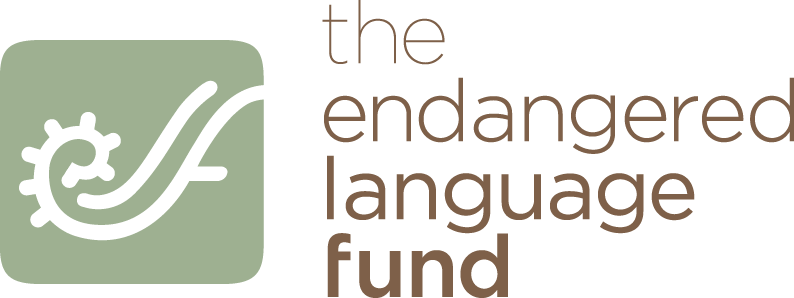Language Legacies Grant Recipients - 2015
Misha Becker & Ben Frey - University of North Carolina
Enhancing Language Pedagogy and Community Language Use of North Carolina Cherokee
The project has two objectives: to assist the teachers and administrators at the New Kituwah Academy immersion school with pedagogical and curricular needs, and to develop ways to encourage the use of spoken Cherokee in everyday situations in the larger community.
Mikhael Benjamin Dawoud - Nissibin High School
Saving the Assyrian Language under ISIS Occupation
Documentation will be carried out by recording 30 consultants telling about local folklore, personal histories, and the history of the region, providing vocabulary lists for salient cultural vocabulary, and singing regional music.
Emily Elfner - University of British Columbia
Documentation of Prosody and Intonation in Kwakala
Working with speakers of the Alert Bay dialect of Kwakala, this project will document sentence- level prosody (pitch, rhythm, and loudness/intensity) and intonation. Structured elicitation and interactive conversation will be recorded, and will be used in the creation of pedagogical materials.
Tieraney Giron - Dry Creek Rancheria Band of Pomo Indians
Southern Pomo Language Project
This project will make use of recorded materials and newly elicited language data from tribal elders who have some command of the language. It will produce a grammatical sketch and basic introduction to the phonology, a series of web-based lessons, a collection of audio recordings for use by learners, and a smart-phone-capable keyboard for the Southern Pomo alphabet.
Tomas Gomez Lopez - CIESAS-Sureste
Documentation of Common Vocabulary in Tseltal of Villa de las Rosas
The purpose of the project is to document the meanings and uses of 1,000 common vocabulary terms, to appear in a Tseltal-Spanish dictionary. This will be the first documentation of this variant of Tseltal.
Joseph Hall - Bates College
Mapping the Wabanaki Homeland of Western Maine
With Passamaquoddy Tribal Historian Donald Soctomah's participation, this project will complete a map of 145 Wabanaki place names in western Maine. Speakers will be consulted on the meanings of the names and the map will be available in print and web versions.
Keisha Josephs - University of Arizona
Conversational Lokono Documentation Training Project
Training will be provided to a Lokono language teacher and other community members on documentation and revitalization technology. They will then work with the few remaining monolingual speakers of the language, focusing on recording conversation and creating language teaching materials.
Daniel Kaufman - Endangered Language Alliance/Colombia University
Documentation of Mohongwe and Ikota Oral Literature
With collaborating researcher Carly Jackson, the project will finalize and publish a previously recorded text collection in these closely related Bantu languages, and will also finalize basic descriptive materials for dissemination. Transcriptions will be verified and put into a practical orthography, and further elicitation will be done.
Mite Lingi - The Idu Language Development Committee
Developing a Writing System for Idu Mishmi Language of Arunachal Pradesh, Roing, India
A committee of the Idu Mishmi Cultural and Literary Society will conduct weekly meetings with local teachers, shamans, gaon buras, and village elders, and will collect word lists in order to determine the phonemic contrasts of the language, and the best orthography to represent it. The wordlists will contribute to a trial primer.
Kristian Adi Putra - University of Arizona
Lampung Language Revitalization Program Evaluation
This project will assess the effectiveness of the Lampung language revitalization program. The results of the project will be used for improvement in the design of the program and for the formulation of language planning and policies to support Lampung language revitalization.
Brendon Yoder - University of California Santa Barbara
Ethnographic Documentation of the Abawiri Language of Papua, Indonesia
Four weeks of fieldwork will be undertaken to provide initial documentation of Abawiri, including a wordlist and a phonological sketch to be used as the foundation for a community-based orthography.
Enhancing Language Pedagogy and Community Language Use of North Carolina Cherokee
The project has two objectives: to assist the teachers and administrators at the New Kituwah Academy immersion school with pedagogical and curricular needs, and to develop ways to encourage the use of spoken Cherokee in everyday situations in the larger community.
Mikhael Benjamin Dawoud - Nissibin High School
Saving the Assyrian Language under ISIS Occupation
Documentation will be carried out by recording 30 consultants telling about local folklore, personal histories, and the history of the region, providing vocabulary lists for salient cultural vocabulary, and singing regional music.
Emily Elfner - University of British Columbia
Documentation of Prosody and Intonation in Kwakala
Working with speakers of the Alert Bay dialect of Kwakala, this project will document sentence- level prosody (pitch, rhythm, and loudness/intensity) and intonation. Structured elicitation and interactive conversation will be recorded, and will be used in the creation of pedagogical materials.
Tieraney Giron - Dry Creek Rancheria Band of Pomo Indians
Southern Pomo Language Project
This project will make use of recorded materials and newly elicited language data from tribal elders who have some command of the language. It will produce a grammatical sketch and basic introduction to the phonology, a series of web-based lessons, a collection of audio recordings for use by learners, and a smart-phone-capable keyboard for the Southern Pomo alphabet.
Tomas Gomez Lopez - CIESAS-Sureste
Documentation of Common Vocabulary in Tseltal of Villa de las Rosas
The purpose of the project is to document the meanings and uses of 1,000 common vocabulary terms, to appear in a Tseltal-Spanish dictionary. This will be the first documentation of this variant of Tseltal.
Joseph Hall - Bates College
Mapping the Wabanaki Homeland of Western Maine
With Passamaquoddy Tribal Historian Donald Soctomah's participation, this project will complete a map of 145 Wabanaki place names in western Maine. Speakers will be consulted on the meanings of the names and the map will be available in print and web versions.
Keisha Josephs - University of Arizona
Conversational Lokono Documentation Training Project
Training will be provided to a Lokono language teacher and other community members on documentation and revitalization technology. They will then work with the few remaining monolingual speakers of the language, focusing on recording conversation and creating language teaching materials.
Daniel Kaufman - Endangered Language Alliance/Colombia University
Documentation of Mohongwe and Ikota Oral Literature
With collaborating researcher Carly Jackson, the project will finalize and publish a previously recorded text collection in these closely related Bantu languages, and will also finalize basic descriptive materials for dissemination. Transcriptions will be verified and put into a practical orthography, and further elicitation will be done.
Mite Lingi - The Idu Language Development Committee
Developing a Writing System for Idu Mishmi Language of Arunachal Pradesh, Roing, India
A committee of the Idu Mishmi Cultural and Literary Society will conduct weekly meetings with local teachers, shamans, gaon buras, and village elders, and will collect word lists in order to determine the phonemic contrasts of the language, and the best orthography to represent it. The wordlists will contribute to a trial primer.
Kristian Adi Putra - University of Arizona
Lampung Language Revitalization Program Evaluation
This project will assess the effectiveness of the Lampung language revitalization program. The results of the project will be used for improvement in the design of the program and for the formulation of language planning and policies to support Lampung language revitalization.
Brendon Yoder - University of California Santa Barbara
Ethnographic Documentation of the Abawiri Language of Papua, Indonesia
Four weeks of fieldwork will be undertaken to provide initial documentation of Abawiri, including a wordlist and a phonological sketch to be used as the foundation for a community-based orthography.

